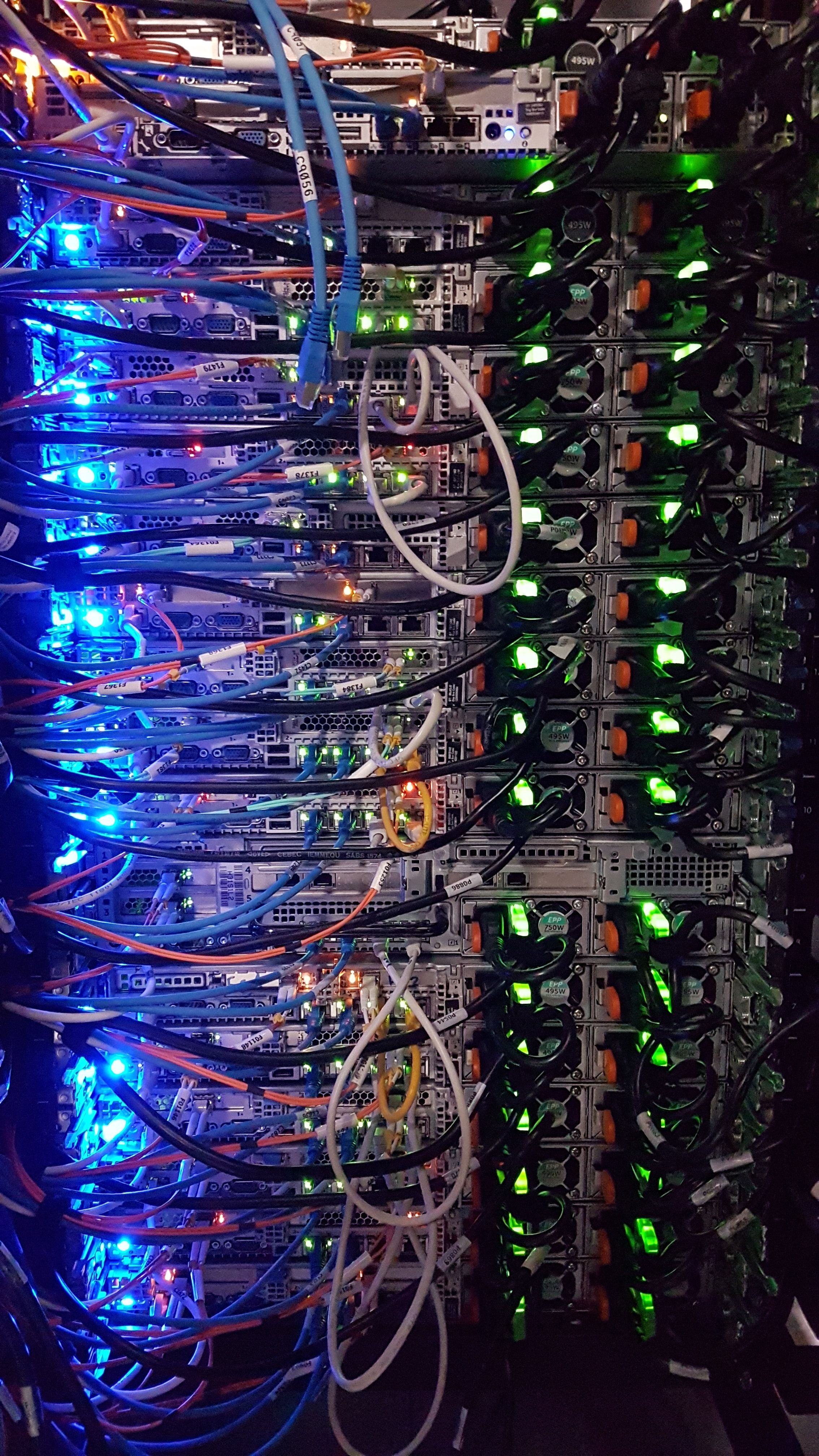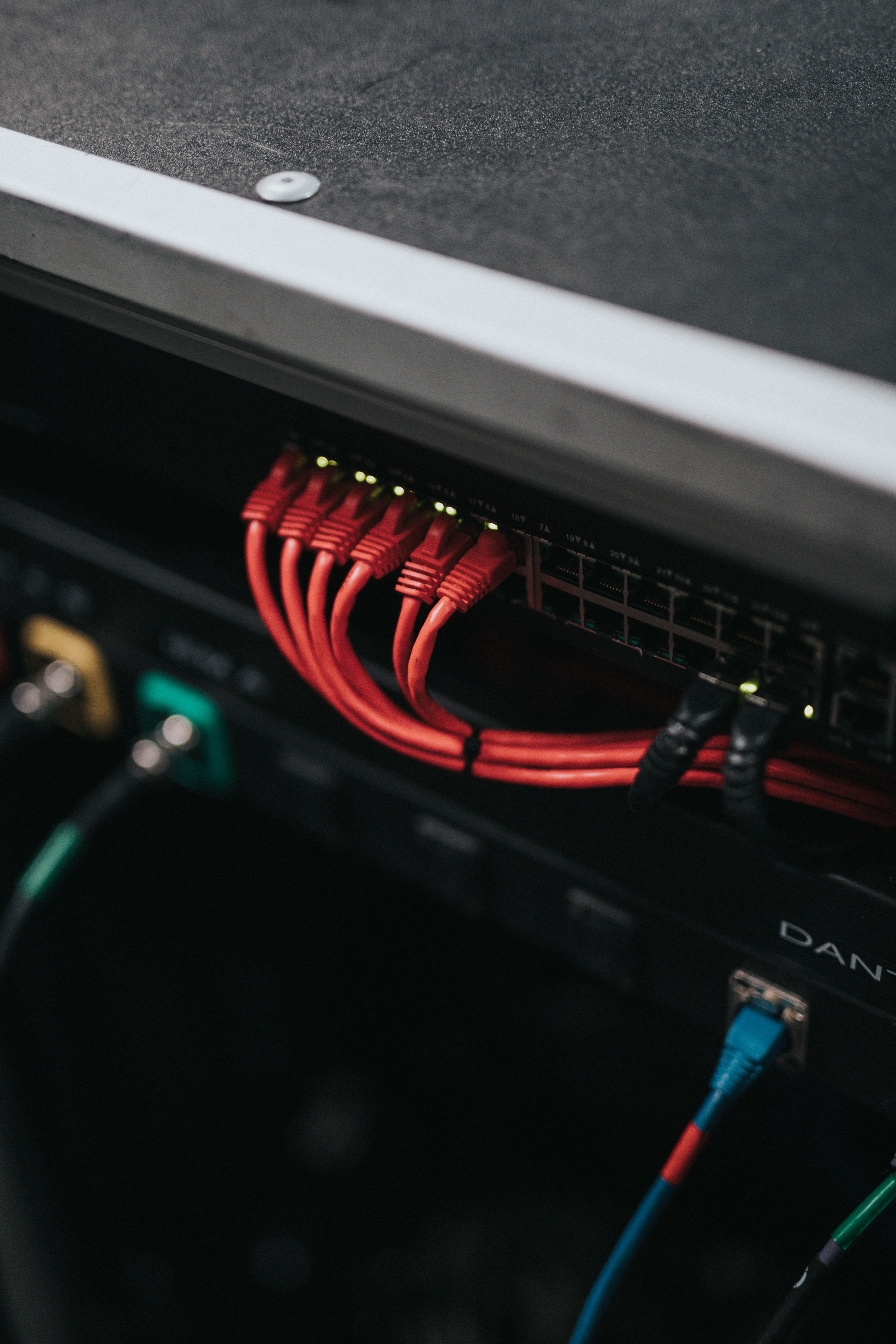Under the Hood - Hosting
Posted on:
Hosting looks simple from the outside, and complicated from the inside.
- Hosting a Page
- Why a server and not just a PC?
- File Access and Support
- Your Webpage is still your responsibility!
Hosting a Page
Many people don't understand the difference between a webpage and hosting a webpage. A webpage is a collection of data/files that can be moved from one computer to another. Those files are like any other files found on a computer. Hosting is where those files exist, and the infrastructure required to keep them accessible to the internet and provide people with your webpage. When you buy "hosting" the product is is a server that can hold your files, give those files out on request, and support in case something goes wrong with that access.
Originally, you had to host your own web page on your own computer. If your computer was not on the internet and running then no one could see your website. Your computer also had to be set up to answer the requests from other computers, which was specialized software.
Today the internet is much more commercialised and easy to use. There are still people who host their own webpages, but most people will use a third party such as HostGator, GoDaddy or BlueHost.
Why a Server and not a PC?

A server is a specifically built computer that handles information in different ways to a PC. A server takes a request for information (someone clicking on a link) and fulfilling that request. The picture below is a bank of servers, each one only a few centimetres high. These servers can fulfil thousands of requests and hold hundreds of thousands of high quality images for webpages, and are designed to do so quickly. Computers are built for other requirements, and general use where as these servers are built for one role, and fit into a much larger bank of machines and cloud data sharing systems.
Your computer sends a request to the internet saying 'please show me this webpage!' Your request goes through your internet service provider first. Their servers look at the information you are asking for, and check the address against the list of locations, and send the request on it's way. Your request may go through multiple servers until the request reaches the HOST. The HOST will interpret the request, locate the files/build the response, and send it back to you. We will explore this process later in a later article
Physically a host is a room full of servers somewhere.
Your files are a bunch of 0s and 1s on a hard drive somewhere.
Your webpage is a handful of data on a very large hard drive of other, similar data.
File Access and Support

A data centre is a building full of servers with a massive internet connection. Things that can go wrong - your server has a software issue. Hardware issue. Firmware issue. A cable comes loose, a fire in the building, lazy maintenance... There's a lot of reasons why your hosting choice is important. Your web developer will have a very shortlist of companies they work with, or they might also run their own hosting service. As any one who works with computers can attest, sometimes computers just don't want to do what their humans want them to do.
With a good hosting service, there will be back up systems in place. For example, within the server itself may be a system that duplicates each hard drive so if one physically fails, the other just steps in while an alert is sent to technicians to fix.
Cloud based backups - which effectively means the data is on a similar sort of physical arrangement but the software distributes the data across multiple devices in multiple locations. The back up systems flow across the cloud and the physical hardware issues are less nasty.

Your Webpage Rests on the Servers but is Your Responsibility What your webpage is, does, and says is not the responsibility of the host. That's for you or your Web Designer. If you contract someone to write you a webpage, but don't have a maintenance agreement with that contract, then maintenance is your problem too. You need to understand what maintenance your website might need, and what legislation your website will work under.
Your website files can be moved between hosts if you wish to change. Many large website platforms have written apps or plugins to make this as easy as possible, but there is always some tidying and extra work required when changing servers. Your webpage is made up of a thousand small parts, and you need to be proactive about knowing where you knowledge and responsibilities start and end.
You should always select a web designer and Host who are happy to answer queries, and help you to understand your role in managing your website. A responsible site owner helps make the Internet a safer, more interesting place!
